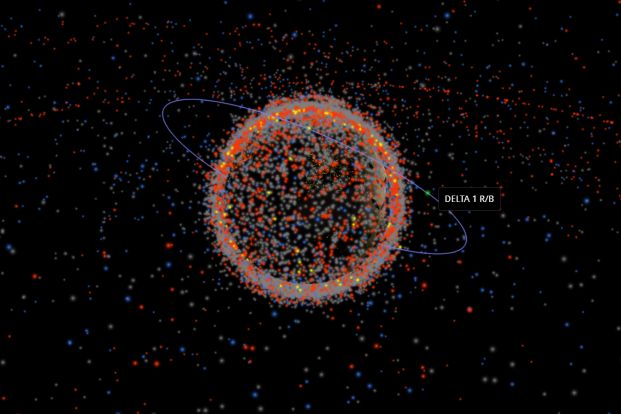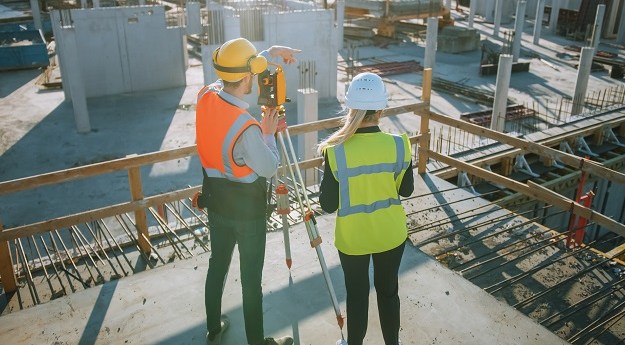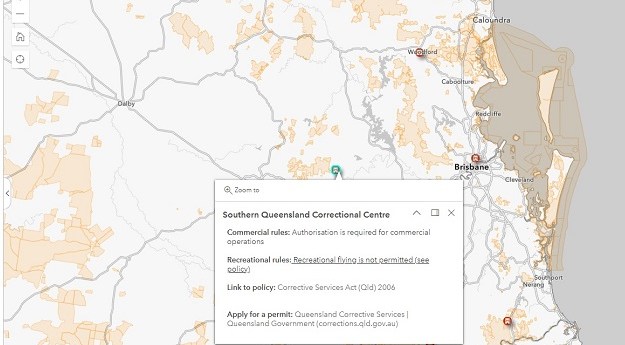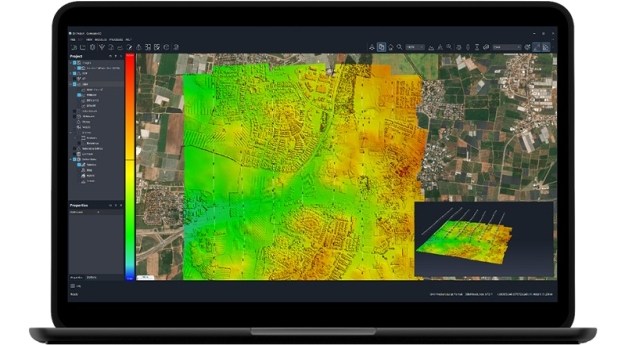
Image source: www.stuffin.space.
Every billionaire seems to want to become a space innovator, with a number promising constellations of hundreds or thousand of satellites. Space is becoming overcrowded.
Recognising this, the Canadian Astronomical Society has posted a statement online that focuses on both satellite debris and the sheer number of satellites in orbit and the related issues for the ground based astronomy community.
The statement reads:
The Canadian Astronomical Society/Société Canadienne d’Astronomie (CASCA) was founded in 1971 and incorporated in 1983 as a society of professional astronomers. The society is devoted to the promotion and advancement of knowledge of the universe through research and education. In this capacity, CASCA is compelled to voice concerns over upcoming satellite constellations, both in terms of their potential impact on astronomy but also in relation to the wider picture of cooperation in the use of space.
We appreciate that many of the technologies now being deployed in orbit have potential benefits to humanity such as providing communication to areas that are underserved by current infrastructure. However, proposed plans have rapidly moved beyond those originally outlined and within a few years constellations may exceed current satellite numbers by 10-fold or higher. With no international oversight over the public commons that is Earth orbit, a likely outcome is that competition between multiple actors will push collision risks higher. The European Space Agency has already had to move a satellite to reduce the collision risk with a constellation currently under deployment.
Beyond this fundamental concern about the use of the Earth’s orbital resources, current analysis suggests tens of thousands of satellites deployed in orbit could pose an acute threat to wide-field, transient and radio astronomy. While arguably many aspects of astronomy are better undertaken from space, the costs associated with that approach make it unfeasible as a general solution.
Posing this debate as either astronomy or a global service of one form or another is a false dichotomy. Working together and having cooperative agreements in place can ensure that orbital resources are used safely and to their best effectiveness for economic, social and scientific purposes. CASCA is resolutely behind achieving this goal through collaboration with the private sector, government and other scientific communities.
Professor Robert Thacker
President CASCA, on behalf of the CASCA Board of Directors
The first and most pressing issue is space junk. This is an issue that space-active states have for the most part ignored until the last few years and while many stakeholders are currently working together to find cost effective solutions, it will take time and money, and space won’t get enough of either. The website ‘stuff in space’ (www.stuffin.space) shows you just what’s up there.
Low Earth orbit (LEO) satellite constellations is the bigger future worry for the ground-based astronomy community. Companies like SpaceX, Telesat, Amazon and OneWeb are all planning mega-constellations and it is open to debate if they’ll do anything to mitigate the issues raised by the astronomy community.












